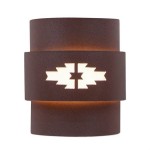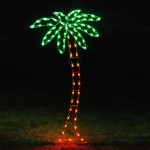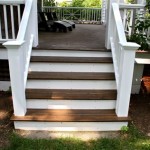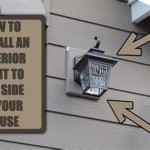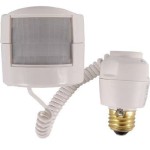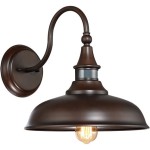Outdoor Lighting Wire Size: Essential Considerations for Optimal Performance
Proper wire selection is crucial for the safe and efficient operation of outdoor lighting systems. The wire size, measured in American Wire Gauge (AWG), directly affects the current-carrying capacity and voltage drop. Choosing the appropriate wire size ensures that the lighting fixtures receive the required power while minimizing energy losses.
Factors Influencing Wire Size Selection
Several factors influence the ideal wire size for outdoor lighting:
- Distance between power source and fixture: Longer distances require larger wire sizes to compensate for voltage drop.
- Total wattage of connected fixtures: Higher wattage loads demand larger wires to handle the increased current draw.
- Voltage drop: Permissible voltage drop typically ranges from 2% to 5%. Larger wire sizes reduce voltage drop.
- Circuit protection: Wire size should be compatible with the amperage rating of the circuit breaker or fuse protecting the circuit.
- Environmental conditions: Extreme temperatures, moisture, and sunlight can affect the wire's insulation and current-carrying capacity.
Wire Gauge Chart and Recommendations
The following table provides general wire size recommendations for common outdoor lighting applications:
| Fixture Wattage | Distance (feet) | Recommended AWG |
|---|---|---|
| 60W or less | 50 or less | 16 |
| 100W or less | 75 or less | 14 |
| 200W or less | 100 or less | 12 |
| 300W or less | 125 or less | 10 |
| Over 300W | Consult an electrician | N/A |
Note: These are general guidelines. For precise wire size calculations, it is advisable to consult with an electrician or refer to the manufacturer's specifications.
Additional Considerations
In addition to the wire size, other factors to consider for outdoor lighting wiring include:
- Wire insulation: Use outdoor-rated wire with UV-resistant and moisture-resistant insulation.
- Burying wires: If wires need to be buried underground, use direct burial-rated cables with protective conduits.
- Connections: Make secure and weatherproof connections using wire nuts or waterproof connectors.
- Professional installation: For complex or high-wattage systems, it is advisable to hire a qualified electrician for proper installation.
Conclusion
Choosing the correct wire size for outdoor lighting is essential for safety, energy efficiency, and optimal performance. By considering the factors discussed in this article, homeowners and contractors can select the appropriate wire size to ensure that their outdoor lighting systems operate reliably and efficiently for years to come.

16 2 Low Voltage Landscape Lighting Wire Copper Conductor Cable

Voltage Drop Calculator

14 2 Low Voltage Landscape Wire Outdoor Lighting Cable 200 Feet

Southwire 100 Ft 12 2 Landscape Lighting Cable In The Department At Com

Southwire 12 Awg Wire Size 2 Conductors Landscape Lighting 24w815 55213402 Grainger

12 2 Low Voltage Wire Outdoor Landscape Lighting Cable 200 Feet

18 Gauge Wire 2 Conductor Electrical 18awg Stranded Pvc Cord Oxygen Free Copper Cable 50ft 15m For Low Voltage Landscape Lighting Ul Listed Com

Low Voltage Landscape Wire Outdoor Cable For Light Diffe Size

Choose The Correct Wire Size Boatus

Southwire 10 Awg Wire Size 2 Conductors Landscape Lighting 55cx79 55213501 Grainger
Related Posts
